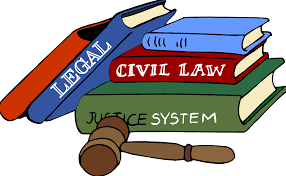Civil Law System refers to an evolving body of legal doctrines governing various legal matters, including contracts, torts, property rights disputes and lawsuits. This system covers approximately 60% of the world and is composed of concepts, categories and rules drawn from Roman law as well as local custom or culture.
Civil law refers to the body of laws that regulate relationships among individuals, businesses and government agencies. It distinguishes itself from criminal law which covers offenses like assault, robbery and murder among other things.
Criminal and civil laws of New York are overseen by the Supreme Court of New York; while lower courts provide for their administration. These include New York City Criminal Court; Nassau County and Suffolk County District Courts; City, Justice, Housing, Surrogate’s, Family and Appellate Division Courts as well as an Appellate Division.
The Civil Part is responsible for hearing general civil cases with claims up to $50,000; the Housing Part handles landlord-tenant matters; and the Small Claims Part hears any variety of small claims up to $10,000. All Civil Part cases are assigned randomly through computer to one of Justices who specialize in handling that category of case.
Civil Part cases are initiated by filing initiating papers with the County Clerk of New York at Room 141B at 60 Centre Street in Manhattan. After receiving these initiating papers, the County Clerk assigns a case number (index number) and enters it into their electronic filing database called eTrack.
The database serves a number of functions, including notifying prospective jurors of their upcoming appearance in court and handling postponements according to law. It’s managed by the County Clerk.
Civil law in the US refers to any body of legal rules that governs disputes between citizens and governments or businesses, and often utilizes codification – an organized set of written rules designed to help both judges and citizens easily comprehend them – for easier understanding and predictability. Civil law systems support cooperation, order, and predictability through an orderly system which supports them all.
Civil law systems play a crucial role in protecting human rights and upholding the rule of law, with particular attention paid to individual freedom and cooperation among citizens.
Under New York State‘s 245 discovery reform law, prosecutors in 62 districts must adhere to an “open file” policy in which they provide defense attorneys any non-privileged information as soon as it becomes available – imposing additional strain on them as they must prioritize cases to meet required timelines.
New York State’s restrictive speed-to-trial laws compound this issue, severely restricting what prosecutors can do before an accused’s trial begins. Unfortunately, many DAs find they simply can’t meet their trial schedules and dismiss cases due to time constraints.
As a result, dismissals in New York State have skyrocketed while guilty pleas have declined significantly – with this trend especially notable in New York City‘s five counties, where caseloads are steadily increasing and ADAs find themselves overwhelmed with triage requirements and discovery timelines.


